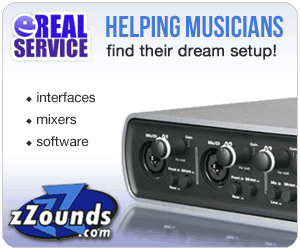So you want to know what a DAW is and what if anything DAW stands for? If you’ve ever considered dabbling in music production, you’ve more than likely ran across this three letter acronym at some point in your internet research and may be curious as to what it means.
So continue reading, and I’ll answer that question and more!
What is a DAW?
The term DAW refers to various software applications, or programs that have been developed over the years for recording, editing, arranging, and producing music from a computer.
Many of these DAWs come packaged with a comprehensive tool set and a plethora of features that allow musicians, producers, engineers, and even just curious tinkerers to create, mix, and ultimately master their music in a completely digital environment.
What used to take a room full of synthesizers and mixers looking eerily similar to the cockpit of a space shuttle with all its buttons, knobs, and sliders can now be done in the comfort of your own home with minimal equipment.
All you need is a computer, a decent DAW, perhaps an audio interface, and a cool beverage to make virtually any kind of music you can think of.
What does DAW stand for?
DAW stands for Digital Audio Workstation. I prefer to think of it as an acronym and actually pronounce it as a word. Many others however, say each individual letter as in “I’m creating a brand new song in my ultra awesome D-A-W known as Reaper!“
As you may have guessed by that last statement, I use Reaper as my DAW of choice, but we’ll talk about that later.
More cool info about DAWs
A typical DAW will include things such as a multi-track audio recorder/editor, a MIDI sequencer, different audio effects (think reverb or delay), mixing tools, and possibly even virtual instruments in addition to various other features.
These tools enable users to record and manipulate audio and MIDI data, arrange and edit different musical elements, apply various effects, and finally mix all the tracks together to create a final product which can then be rendered out.
If you don’t know what MIDI means, take a look at the Wikipedia article on the topic: MIDI. It can be a little confusing at first, so don’t sweat it.

Some of the more well known DAWs
There are a lot of DAWs on the market to choose from, and that can be confusing for anyone right from the get go.
If you’ve decided to try your hand at music production and are wondering what DAW is the best, all I can say is that you need to take plenty of extra time researching, watching videos, reading reviews, and deciding what company is currently making the DAW that would best fit your needs.
Whichever one you ultimately decide on, just keep in mind that there will be a bit of a learning curve no matter what DAW you go with.
As I mentioned earlier, I use Reaper and it is a great DAW. It’s highly customizable and just generally works well for me. If you want to check it out you can follow this link: Reaper.
There is no affiliate program that I’m aware of, so rest assured I’m not just recommending it for money. I just really like the program.
Cost wise, here is what the website says:
From mission-critical professional environments to students' laptops, there is a single version of REAPER, fully featured with no artificial limitations. You can evaluate REAPER in full for 60 days. A REAPER license is affordably priced and DRM-free.
With that being said, you might find a different DAW that clicks with you and has all the features you are looking for at the price you want to pay. By all means go for it!
I’m not saying Reaper is the best DAW. On the contrary, I’m simply saying it’s what works great for me.
So here’s a list of some well known DAWs in no particular order, and don’t worry, none of these are affiliate links:
- Ableton Live
- Cubase
- FL Studio
- Pro Tools
- Logic Pro – For Mac only
- Reaper – Yay!
- Audacity – Free open source
- Acid Pro
- Adobe Audition – Not a true DAW
- Mixcraft
- GarageBand – For Mac only
- Ardour – Free…kind of?
This is by no means a comprehensive list nor is it meant to be a deep dive into each program because that would be way beyond the scope of this article.
You can use the links above to evaluate each one and decide if any of them would work for you.
Something to keep in mind is that some of the programs are free, some have limited free trials, and others are for Mac and possibly not for PC. So please do your due diligence.
In other words, please don’t shoot the messenger!

What to do next?
If you are brand new to music production or interested in learning to play the drums, you can check out my article: How to Hold Drumsticks
You might also want to check out this article: Acoustic Vs. Electronic Drums – Which One is Right for You?
If you are looking at buying your first drum set or any musical instrument for that matter, take a look at Zzounds. They have a variety of acoustic drum sets and electronic drum sets for purchase.



